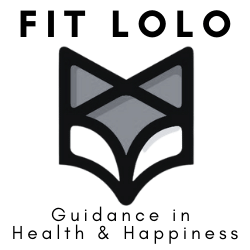170616 - Food Fact Friday w/ Coach Bri - "Undereating"
We’ve heard time and again that weight loss, gain, or maintenance is as simple as calories in, calories out. If you are consuming fewer calories than you are expending, you will lose weight and vice versa. However, it is much more complicated than that. Surprisingly, many of us are not getting the amount of calories we need to be the best version of ourselves, and if we have weight loss or fitness goals, we may actually be hindering these goals by undereating.
All of you are athletes at different levels and you each require a different amount of calories to meet your personal needs and fitness goals. That being said, it is very common to hear that people aren't overeating, they're actually undereating. When I refer to undereating here, I don’t necessarily mean intentionally restricting calories. This could simply be that someone doesn’t realize that they are not getting enough calories. If you are experiencing some of the symptoms I discuss, you may simply need to increase your calorie intake and you’ll see improvement!
Undereating can come with a multitude of negative side effects and weight loss may not even result. Our bodies are efficient machines that make use of fuel (in the form of food) so well that when we undereat, multiple mechanisms start occurring to maintain our weight for survival purposes. Some symptoms that result from not getting adequate calories include poor recovery from workouts, difficulty sleeping or poor quality sleep, fatigue, depression, mood swings, poor concentration, and excess hair loss. Also, your performance at the gym could suffer. If you are experiencing any of these symptoms, you may not be taking in enough calories.
Your body needs adequate carbohydrates to provide energy for workouts and adequate protein to recover from the strenuous activity we do at Choice City. Consuming carbohydrates prior to working out leads to stores of glycogen (a.k.a. fuel) in your muscles. These glycogen stores are a major source of energy during workouts like the high intensity WODs we do. If you don’t have these stores built up, your energy levels during workouts may be markedly decreased and your performance may suffer. We’ve all felt that fatigue when we have missed a meal prior to working out, and with chronic undereating, this can be more pronounced. Consuming high-quality proteinafter exercise aids in recovery of your muscles and is important for synthesis of new muscle. Finally, a CrossFit workout burns an average of 500 calories in an hour. It is important to take this into account on the days that you come into the gym. Make sure you are factoring this into what you are eating; you likely need to eat more on these days than usual.
These are very general recommendations. I would happily sit down with any of you who are interested and discuss your more specific needs!
CrossFit Open WOD - 17.5
10 Rounds
9 Thrusters 95#/65#
35 Double Unders
40 min time cap.


